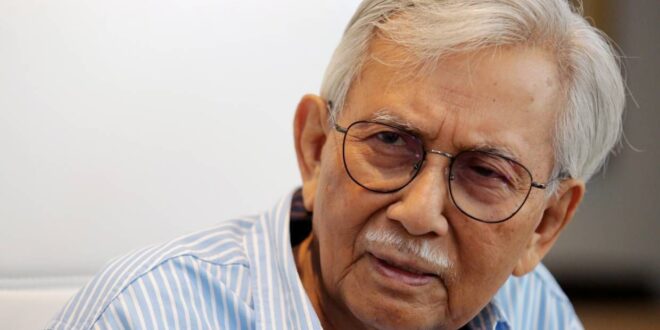PETALING JAYA: Tun Daim Zainuddin has challenged the validity of the Malaysian Anti-Corruption Commission (MACC) charges against him, saying that they infringe on his right against self-incrimination.
When contacted yesterday, the tycoon and former Finance minister’s lawyer Rajesh Nagarajan confirmed that the application was filed in the Kuala Lumpur Sessions Court on Friday.
According to his affidavit, Daim said he was charged under Section 36(2) of the MACC Act 2009, which contravenes with Articles 5 and 8 of the Federal Constitution as it infringes his right against self-incrimination.
On Jan 29, Daim was charged in the Sessions Court for failing to comply with a notice to declare his assets, which include several luxury vehicles, companies and properties in Kuala Lumpur, Selangor, Pahang, Negri Sembilan, Perak and Kedah.
On Jan 23, his wife Toh Puan Na’imah Khalid was charged in the same Sessions Court for failing to comply with a notice to declare her assets, which include Menara Ilham and several other properties in Kuala Lumpur and Penang.
Daim, 85, Nai’mah, 66, and their four children − Asnida, Md Wira Dani, Muhammed Amir Zainuddin and Muhammed Amin Zainuddin − and Ilham Tower Sdn Bhd had applied for leave on Jan 10.
They named the MACC and the public prosecutor as the first and second respondents.
They want a court declaration that MACC’s actions were unlawful, unconstitutional and void, among others.
According to the notice of application, they are seeking a declaration that the MACC and its officers have no reasonable cause for investigation, which would lead to a prosecution for any offence under the MACC Act 2009 or the Anti-Money Laundering, Anti-Terrorism Financing and Proceeds of Unlawful Activities Act 2001.
On March 4, the High Court rejected Daim’s bid to obtain leave to commence judicial review over the MACC’s probe into his family.
In his broad judgment, High Court judge Justice Wan Ahmad Farid Wan Salleh said that Daim’s contention against the MACC should be addressed by a criminal application and not a judicial review.
 BeritaKini.biz Berita Viral Terkini di Malaysia
BeritaKini.biz Berita Viral Terkini di Malaysia





